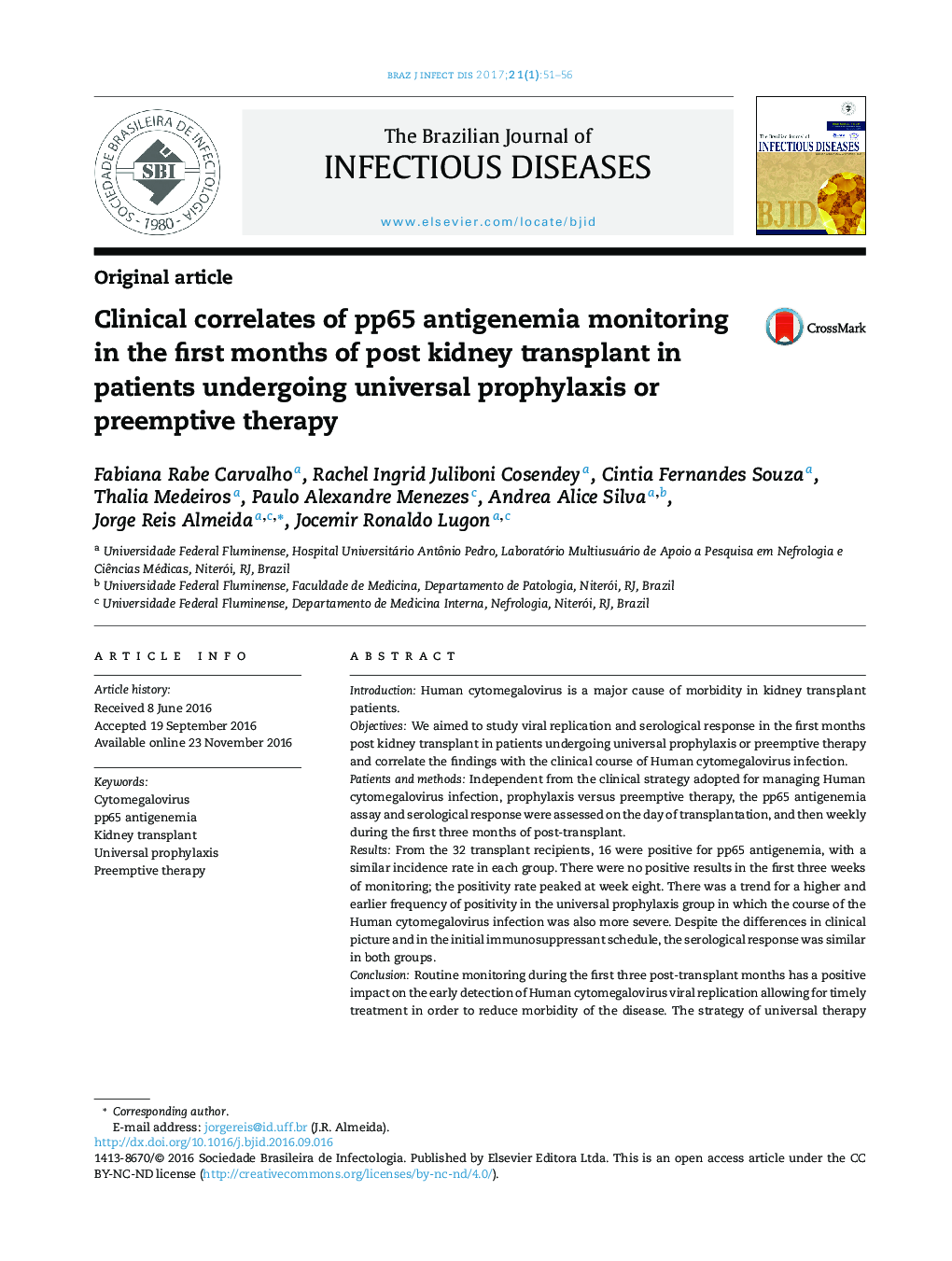| Article ID | Journal | Published Year | Pages | File Type |
|---|---|---|---|---|
| 5665574 | The Brazilian Journal of Infectious Diseases | 2017 | 6 Pages |
IntroductionHuman cytomegalovirus is a major cause of morbidity in kidney transplant patients.ObjectivesWe aimed to study viral replication and serological response in the first months post kidney transplant in patients undergoing universal prophylaxis or preemptive therapy and correlate the findings with the clinical course of Human cytomegalovirus infection.Patients and methodsIndependent from the clinical strategy adopted for managing Human cytomegalovirus infection, prophylaxis versus preemptive therapy, the pp65 antigenemia assay and serological response were assessed on the day of transplantation, and then weekly during the first three months of post-transplant.ResultsFrom the 32 transplant recipients, 16 were positive for pp65 antigenemia, with a similar incidence rate in each group. There were no positive results in the first three weeks of monitoring; the positivity rate peaked at week eight. There was a trend for a higher and earlier frequency of positivity in the universal prophylaxis group in which the course of the Human cytomegalovirus infection was also more severe. Despite the differences in clinical picture and in the initial immunosuppressant schedule, the serological response was similar in both groups.ConclusionRoutine monitoring during the first three post-transplant months has a positive impact on the early detection of Human cytomegalovirus viral replication allowing for timely treatment in order to reduce morbidity of the disease. The strategy of universal therapy employing intravenous ganciclovir was associated to a worse clinical course of the Human cytomegalovirus infection suggesting that the use of >10 cells/2Â ÃÂ 105 leukocytes as a cut-off in this setting may be inappropriate.
